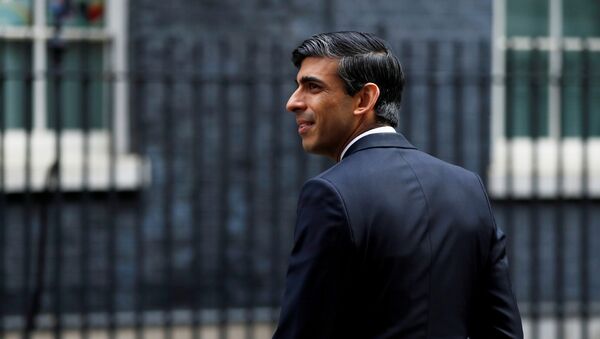The Digital Services Tax (DST), dubbed the “Facebook tax” on big tech companies, which was introduced last April, could be ditched after Chancellor of the Exchequer Rishi Sunak came to believe that the £500 million a year it is expected to raise is a drop in the bucket compared with the hundreds of billions of pounds the nation's finances have lost as a result of the coronavirus pandemic, The Mail on Sunday reported.
On top of it, the tax is viewed as a roadblock to fruitful trade talks with Washington, with the American authorities insisting the tax unfairly targets US tech companies.
“At just half a billion quid, Rishi has concluded it is just more trouble than it is worth, given the anger of Trump and the Washington establishment,” a source told the edition.
Sunak’s predecessor Chancellor Philip Hammond designed the tax, levied at two per cent of sales, to ensure international tech companies pay at least some tax on revenues from their sales in Britain. Meanwhile, certain limitations on the tax introduced by the Treasury ensure that almost all of the revenues will come from US tech companies, with the tax applying to only companies with £25 million of revenues or more - Google, Facebook and Amazon among them.
European digital successes such as Spotify and Monzo are reportedly excluded because they do not operate “search engines, social media services and online marketplaces”.
With the covered companies understood to be dissatisfied with the DST, concerns have mounted that the internet giants will pass its costs on to customers.
For instance, earlier this month, Amazon announced it would increase seller fees from September after talks with the government on the DST bore no results.
Amazon said it had pointed to the potential impact of the DST since it became law, but would now pass on costs via various fees starting from 1 September.
In the ongoing trade talks, International Trade Secretary Liz Truss reportedly asked her US colleagues if they would drop their insistence on the UK allowing substandard food products such as hormone-injected beef if the tax was dropped.
In response, the US Senate committee overseeing trade this month urged the UK to “reconsider this punitive action against its ally”, with President Trump's administration threatening in January to impose tariffs on British car exports if the UK didn’t axe the DST.
‘Temporary’ Tax?
US officials have been increasingly raising the issue of the DST in recent months, citing it as a stumbling block to a comprehensive and mutually beneficial trade deal. A Treasury spokesperson addressed the issue, stating the move had been planned as a temporary one, in light of the ongoing talks about global levies on tech giants.
“We've been clear it's a temporary tax that will be removed once an appropriate global solution is in place – and we continue to work with our international partners to reach that goal,” the spokesperson said.
Separate Levies Instead of a Global One
As the talks on a global digital tax reached a deadlock, countries around the world have gone ahead with their own levies on internet giants. Britain, as well as France, Spain, Italy and other European nations have imposed taxes on digital titans, most of them American, that have multinational earnings that often elude the tax authorities' grip.


